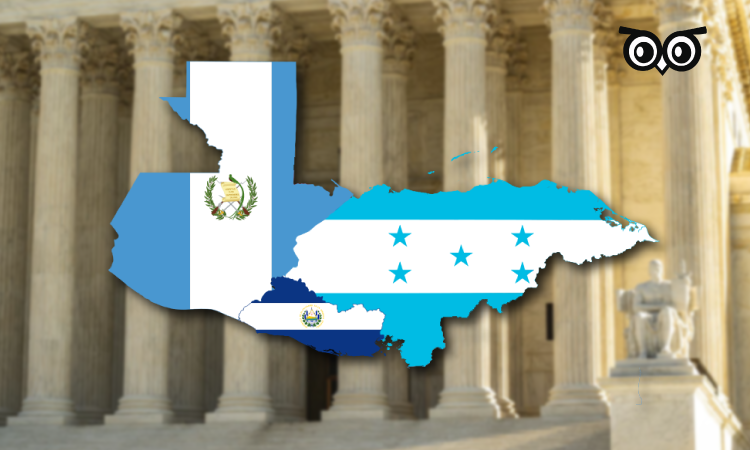On October 7, Anabel Gallardo, president of the Honduran Council of Private Enterprise (COHEP), urged citizens to participate in the November 30 election: “Honduras is going through a decisive moment, full of challenges, and only massive, responsible, and informed participation can strengthen our institutions and steer us away from fears of fraud.”
Strengthening institutional frameworks is the chief challenge for El Salvador, Guatemala, and Honduras—the Northern Triangle (NT). Identifying what weakens institutions and coordinating common action would allow them to fulfill their mission.
Established in 2000 as part of a trade agreement with Mexico, the NT concept arose to confront shared challenges: poverty, emigration, violence, and organized crime. Although wavering in popularity, the idea has been to benefit from regional cooperation and joint strategies. The NT has also been a target for various foreign-aid programs.
However, after all that has been said and done, the RELIAL 2025 Institutional Quality Index—which assesses the institutions that uphold freedom in 181 countries—ranks Guatemala 100th, El Salvador 112th, and Honduras 136th. What is causing such institutional dereliction?
- No Separation of Powers
A fragile to nonexistent separation of powers fuels conflicts and crises, invites external interference, and weakens state institutions. One example was the election of the president of Honduras’s National Congress in January 2022. Executive-branch representatives broke into the Congress, alongside politicos within the governing alliance, to demand the election of now-Congressional President Luis Redondo.
- A Culture of Corruption
Widespread dishonesty and graft in the public and private sectors undermines transparency, accountability, and public trust. To tackle corruption, Guatemala established the International Commission against Impunity (CICIG) in 2007 through a UN-Guatemala agreement. Its goal was to strengthen institutional capacity. Unfortunately, corruption scandals in Guatemala persisted during and after the CICIG’s existence.
- Weak Governance Policies
There is an absence of strong legal frameworks and effective implementation to promote transparency and the rule of law. Consequently, government programs—such as crucial security enforcement—fail to achieve their objectives. Foreigners and locals alike lose confidence in the jurisdictions.
The NT remains one of the deadliest regions in the world, with rates of murder exceeding those of war zones. Tackling such structural challenges requires prioritizing state policies designed for the long term, with clear rules that endure.
- A Compromised Judiciary
A lack of independence, efficiency, and resources in the justice system has ruined confidence in the impartiality of law-enforcement bodies. Although President Nayib Bukele’s security plan in El Salvador—designed to counter organized-crime violence—has drawn praise from some sectors, including the Donald Trump administration, human-rights organizations have noted its authoritarian tendencies and censorship. One important misstep has been the constitutional reform the Salvadoran Congress approved, without adhering to the legitimate process. It enabled indefinite reelection, extended the presidential term from five to six years, and eliminated the electoral runoff.
- Low Citizen Participation
When civil society does not engage and exercise oversight, impunity and unaccountability run rampant. Politicians will not strengthen institutions unless incentivized to do so. Citizens must participate beyond election day and demand proper representation.
The NT countries should deepen crowdsourced collaboration against corruption, organized crime, and drug trafficking. Stronger institutions would promote economic prosperity and curb mass emigration. An integrated, long-term, forward-thinking approach is essential—backed by firm commitments from political leaders, civil society, and the international community—to achieve meaningful progress on this front.
This article appeared in El País.

